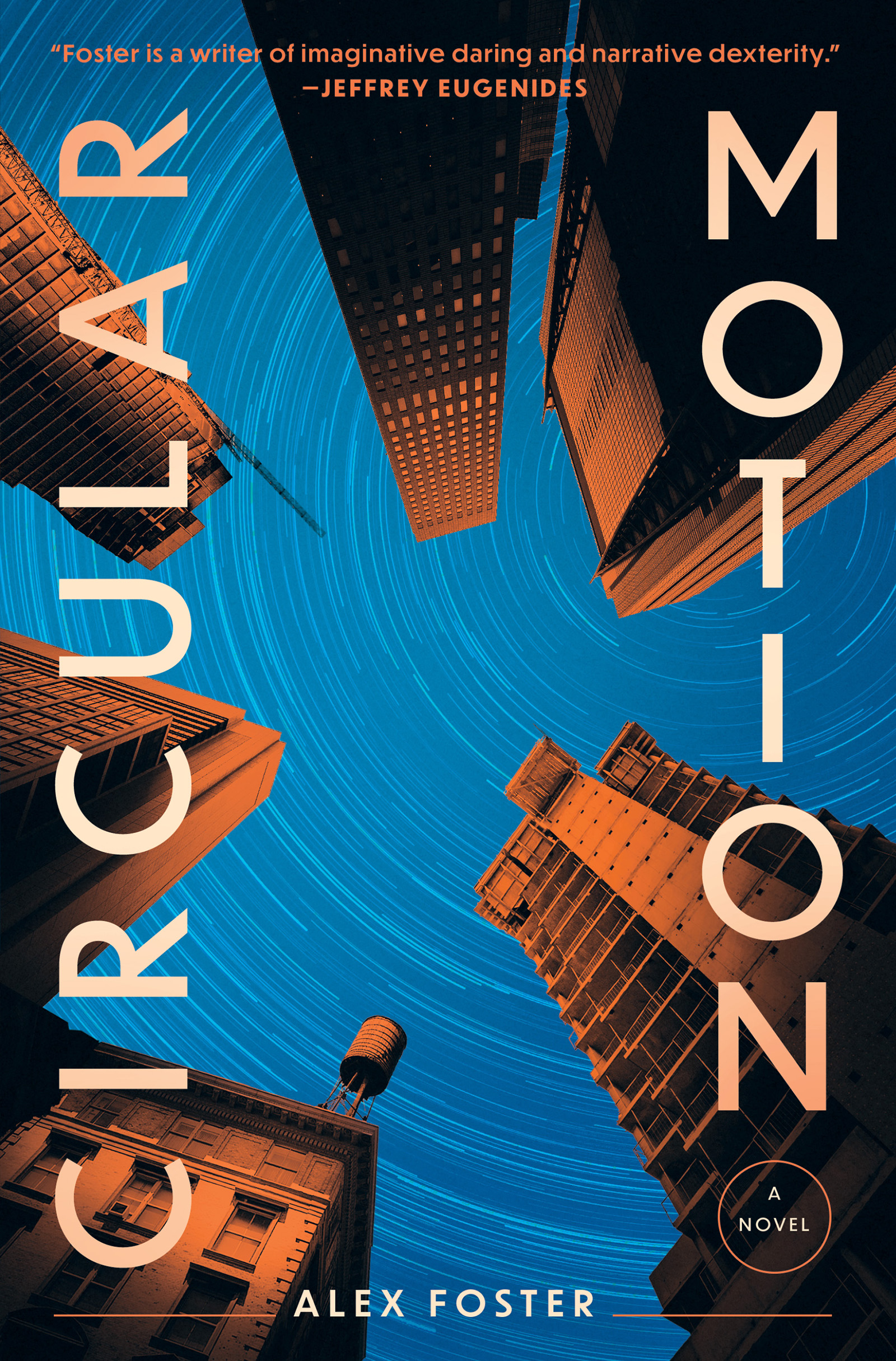 Alex Foster’s Circular Motion provides a kind of literary science fiction which harkens to the recent blurring of genres seen by the likes of Ling Ma’s Severance or Emily St. John Mandel’s Station Eleven. Yet, unlike these novels, Circular Motion doesn’t take us all the way into the post-apocalyptic space—possibly it’s more of a cousin to titles like Kashana Cauley’s The Survivalists or even Jonathan Abernathy You Are Kind by Molly McGhee. Like McGhee’s book, Foster’s protagonist is desperate for something that seems just out of reach, but as he begins to unpeel the layers surrounding his desires, he discovers not only the problematic forces invisibly governing his world, but also the troubling nature of those desires.
Alex Foster’s Circular Motion provides a kind of literary science fiction which harkens to the recent blurring of genres seen by the likes of Ling Ma’s Severance or Emily St. John Mandel’s Station Eleven. Yet, unlike these novels, Circular Motion doesn’t take us all the way into the post-apocalyptic space—possibly it’s more of a cousin to titles like Kashana Cauley’s The Survivalists or even Jonathan Abernathy You Are Kind by Molly McGhee. Like McGhee’s book, Foster’s protagonist is desperate for something that seems just out of reach, but as he begins to unpeel the layers surrounding his desires, he discovers not only the problematic forces invisibly governing his world, but also the troubling nature of those desires.
Circular Motion is based on the premise that world travel has become essentially instantaneous. Consequently, the speed of the motion created somehow affects the speed at which the Earth turns. The new spin of the Earth slowly changes the length of the day, throwing everything out of whack: Obvious things, like the tides, and more nuanced things, like the Circadian rhythms of, well, everything.
Some science fiction novels feel as if they are dripping with allegory or satire; Foster’s version instead plays with a real scientific What-if, which gives the reader the impression that Foster had an idea and then played it out, adding characters in order to demonstrate the real and powerful impact of this kind of theoretical change. His characters feel sincere as they maneuver through his theoretical world, and the theoretical world feels sincere in its creation, allowing us to trust Foster in his experimentation—an impressive accomplishment for a debut.
This trust is partly earned through pacing. We spend a lot of the first chunk of the novel deep in our protagonist, Tanner’s, head, and this is a smart choice for a number of reasons. Foster, like many novelists, use his early pages to setup his conceit, but because he keeps the plot clipping along while he efficiently acquaints us with Tanner’s POV and situates us in the world Tanner’s living in, it doesn’t just feel like setup. Tanner’s voice, however, is what carries all of it. His isolation leaves him stuck in his own head, and we get stuck, too.
Certain elements that appear in the novel—moments of absurdity that are a bit too contrived—feel less confident than the rest of the material. With such a complex and layered idea already presented to us, naming characters like “Victor Bickle” feels slightly too tongue-in-cheek. As a novel so decisively taking a shot at the kinds of systems that tangle and twist around us, there’s already enough irony in between the lines and enough humor picked up by the observations of Tanner and anyone else who is paying any attention—these kinds of little details almost feel unnecessary.
For the most part, Foster displays supreme control rarely seen in a debut, with each detail purposeful and each element introduced by a careful and thoughtful hand. His work is thorough and meticulous, and the immense dedication to each and every facet of this novel cannot be ignored. Circular Motion is not your average debut novel. Using the perspective that Foster has drawn from dipping in and out of his study of economics, business, writing, and his own travels around the globe, Foster presents us a novel with not only a unique perspective, but the kind of academically driven scientific rigor that keeps us believing. All good sci-fi feels like horror when you turn it around and look at yourself through the lens of the writer’s trick, and Foster’s writing has precisely this quality, but he isn’t a fatalist. Or at least, not quite yet.
Publisher: Grove Atlantic
Publication date: May 13, 2025
Reviewed by Joanna Acevedo
Joanna Acevedo is the author of three books and two chapbooks. Born and raised in New York City, she received her MFA from New York University in 2021, in addition to holding degrees from Bard College and The New School. Her writing crosses genres, with particular focus in creating accessible resources for emerging writers. She’s worked every job in publishing at one point or another, from the glamorous bulk mailing of ARCs to ghostwriting self-help memoirs for CEOs, and, most recently, she did a six-month stint as the Editor in Chief of Frontier Poetry. Currently, she’s exploring new platforms to host and develop revolutionary approaches to literary publishing and the creative arts. Learn more about her and her work by visiting her website: https://www.joannaacevedo.net.
